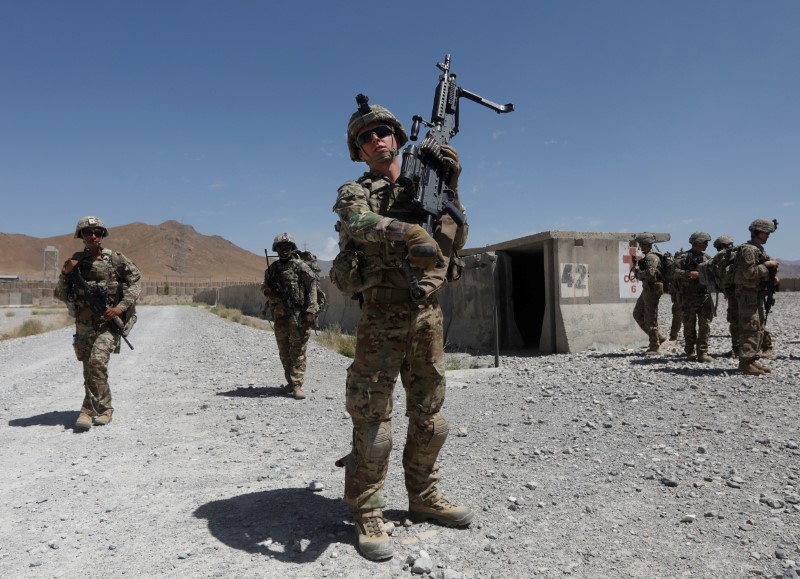KABUL (Reuters) – The commander of foreign forces in Afghanistan, U.S. Army General Scott Miller, on Sunday said an orderly withdrawal of foreign forces and the handing over of military bases and equipment to the Afghan forces had begun.
Miller said he was acting on orders based on U.S. President Joe Biden’s decision to end America’s longest war, deeming the prolonged and intractable battle in Afghanistan no longer aligned with American priorities.
Earlier this month Biden said he would withdraw troops from Afghanistan before Sept. 11, the 20th anniversary of the militant attacks on the World Trade Centre and the Pentagon that launched the Afghan war.
Miller, who has been commanding the U.S. forces and the NATO Resolute Support Mission in Afghanistan in their fight against the Taliban and other Islamist militant groups since 2018, said foreign forces will continue to have “the military means and capability to fully protect themselves during the ongoing retrograde and will support the Afghan security forces.”
“I’ve had the opportunity to talk to Taliban members with the Taliban Political Commission, and I’ve told them a return to violence, an effort to force a military decision, would be a tragedy for Afghanistan and the Afghan people,” Miller told reporters in the capital Kabul.
The Taliban ruled Afghanistan from 1996 to 2001, when they were ousted by U.S.-led forces. Since then they have waged a long-running insurgency and now control wide swathes of territory.
Security experts in recent weeks said they doubt if the Taliban will allow U.S. forces, whom they call invaders, to peacefully exit the country at a time when clashes between the Afghan forces and the Taliban have not ebbed.
Foreign force withdrawal is slated to begin on May 1, in line with an agreement with the Taliban in 2020.
“As we retrograde to zero U.S. forces, we will turn over the (military) bases primarily to the (Afghan) Ministry of Defense and other Afghan forces,” Miller said adding that the Taliban have committed to break their relationship with al Qaeda, the Islamist extremist group.
The Taliban government’s sheltering of Al-Qaeda was the key reason for the U.S. invasion of Afghanistan after the September 2001 attacks.
A United Nations report in January said there were as many as 500 al Qaeda fighters in Afghanistan and that the Taliban maintained a close relationship with them. The Taliban denies al Qaeda presence in Afghanistan.
(Reporting by Rupam Jain, Editing by Hugh Lawson)



















